#denouement of war
Text
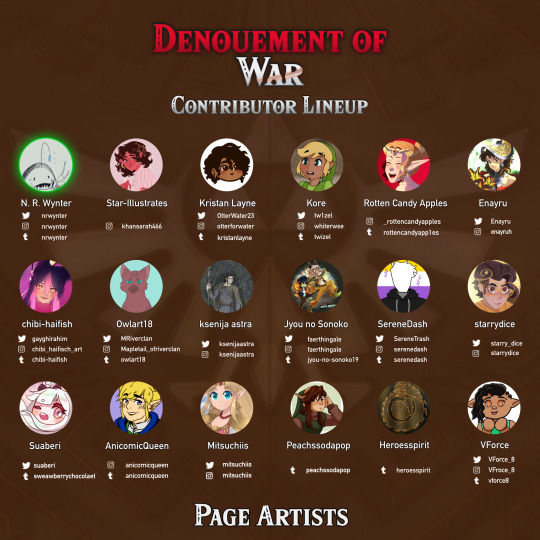
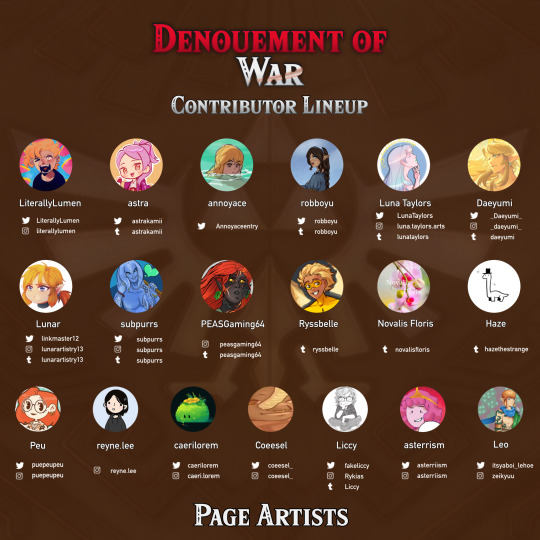
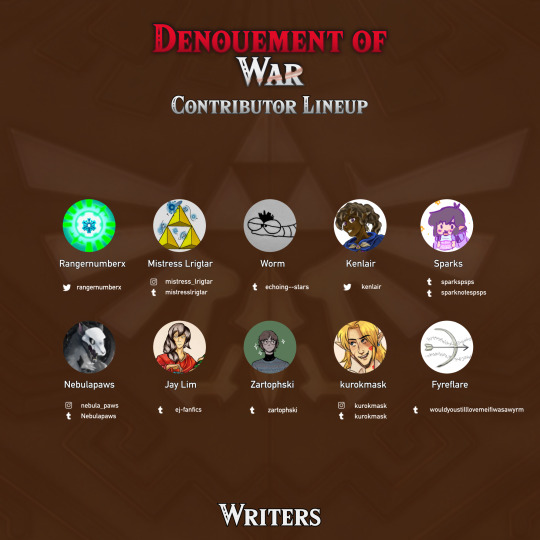

⚔️ DENOUEMENT OF WAR — CONTRIBUTOR LINEUP ⚔️
Meet our warriors!
We are thrilled to finally reveal contributor lineup for Denouement of War: Hyrule Warriors Zine! A grand total of 37 page artists, 10 writers, and 5 digital merch artists that will be working hard and giving their best for Hyrule Warriors 10th Anniversary!
Please give them a warm welcome!
114 notes
·
View notes
Note
Which is your favourite and least favourite harry potter book?
while i think Prisoner of Azkaban is the best on a technical level, my favorite is Goblet of Fire. because it's a fucking blockbuster. like, this is a book that is firing on all cylinders, trying to do a million billion things at once, and it executes the fuck out of basically everything. besides the fact that it dives deeper into character dynamics than any previous book (ron and harry! hermione and ron! hermione and krum! sirius and harry! ron and percy! etc!!), it's a massive expansion of the universe: it opens up whole new wizarding hemispheres, new countries, new cultures, TONS of new characters, the Quidditch World Cup, the Triwizard Tournament, the Ministry of Magic's bureaucratic politics, the Old Guard death eaters, and the beginning of the Order of the Phoenix. it gives us Fleur and Krum and Mad-Eye Moody and Cho and Cedric and Charlie Weasley, and the first taste of Snape's backstory, not to mention pensieves and mermaids and fucking dragons, like sorry, are you seeing this shit??
and then, finally, it gives us the beginning of the second wizarding war. it gives us the graveyard scene and Cedric Diggory's sacrifice, one of the best and most important moments in any book ever, because it's the whole story in a nutshell, and it's also the moment that the plot starts. Goblet is the crux of the entire series, and it nails almost everything. (the exception being the Moody plot twist, which... I did not love, but like: must a conclusion be "good"? is it not simply enough for a story to plow headfirst off the rails in a wildly entertaining direction, and then end? i think it is.)
so those are what I see as the Objective Goods of Goblet. my Subjective Goods are: i love a tournament arc, i love a GAME, i love a set of rules and rituals and ceremonies and opportunities to demonstrate character through contrasting behavior in response to pre-ordained challenges and rule sets. i love you Yule Ball, i love you prom arc, i love you dressing characters up in silly little outfits and making them take each other on dates, i love you teenage drama and misunderstandings and jealousy and teenybopper romantic subplots. i love you goblet of fire.
#least favorite is easily deathly hallows#i've bitched about it on here before but deathly hallows just misunderstands the story that it's ending#in a way that is almost unforgivable as the last note for a series#you can't just end your seven-book saga about the world-saving potential of love and community by having your protagonist#take off on his own with only two people and bitch at them for 200 pages#reject help at every opportunity refuse to tell any of his adoptive family shit#have a war happen 95% off-page and then end with a Big Damn Battle where your protagonist becomes a christ allegory#basically solidifying the idea that no actually this guy was just Super Special all along#and the community was nice but really it was All About This One Guy fighting This Other Guy! no politics no themes here folks!#andnowtheyallhavebabies BYE!!#like sorry. L denouement bro
37 notes
·
View notes
Note
👀👀love how you analyze the xc3 cast, any chance you want to talk about juniper and tau?👀👀
Yeah for sure, Tau is definitely the place in the plot where we start getting a sense of scale for the futility of the war, I think. They're sandwiched between a Silver Keves colony and the Castle, in terrain that pretty much nobody is gonna bother traversing unless they have to, and even though they are properly equipped to fight there, that's not gonna matter if no enemies show up to feed them. Their Flame Clock is a huge penalty on the colony, that otherwise has been finding ways to survive -- I wouldn't call it quite thriving, but we see significant development in their infrastructure the moment they stop needing to worry about meeting their hunting quota.
Tau is losing the war by winning at peace, essentially. They've got the potential for being self-sustainable, they've got more than enough work in their hands in Matktha as active parts of the ecosystem, they've even got an alliance with the Tirkins that could lead to a permanent peace treaty and even cooperation, but because the mechanics of the war don't care about that, they're starving to death. In what world does a war that punishes those fighting the least the harshest have any meaning to it? Tau's situation, especially when paired with Colony 5 in the same region later in the game, really reveals that win or lose, the purpose of the game is to die.
Juniper being handed a losing battle and being told in no uncertain terms that their duty is to just see it through to the end with grace really fucks up their ability to lead their colony from the start, y'know? The blithe way they initially dismiss the idea of being freed from the Flame Clock, the weight of the old ways being a shackle that stops a lot of progress in Tau being made, I really got the sense that Juniper was expecting to end up the last person standing at Tau, and that there was fundamentally nothing they could do but to prolong the suffering, because that's all anyone at Tau had ever really amounted to.
And it makes sense! Because under the Flame Clock -- under a system where nothing matters except how many bodies you put in the ground -- none of Tau's solutions were working, and without being able to imagine a world without the war, it was hard to judge whether that was because their novel solutions were bad. Juniper's temperament being of the watchful, patient sort only compounds the problem, they see that progress should be made but it isn't, so they're clearly doing something wrong. It's easier to go back to a former flawed method on the idea that someone somewhere must have just thought about it more. There's no way to build confidence under such circumstances.
I wish we had seen more of Juniper after their Ascension quest, because I think it's interesting how U plays to their fear of the novel, her clear condescension and treatment Juniper as if they're a helpless idiot child who can't think for themselves playing into Juniper's learned helplessness and lack of confidence. Juniper being given the opportunity to rebuff that was good, but I think the way the missions can come out in almost any order on the player end means that we kind of get stranded in the climax of Juniper's character arc without a denouement.
#van's answers#Xenoblade Chronicles 3#Xenoblade 3 spoilers#Juniper (XC3)#Juniper's denouement really comes in Colony 9's plotline#which is WEIRD because I think the majority of people are gonna be playing through that one first#Juniper being able to shrug off Kite's hostility#and being able to commit to working with them for new solutions#always came across as them being like 'I too have fallen prey to the sunk cost fallacy'#Juniper is overwhelmingly competent compared to the way self-effacing way they talk about themselves#they're just not competent at WAR#and if they'd had a bigger role in the midgame where the Aionios Mutual Aid Network is being established#it would have been clearer#like I really wish there had been some other colony that had decided to try to form and alliance with the local beast tribe#based on the success Juniper had had with Tirkins#or something#as it is it's a little half-baked
14 notes
·
View notes
Text
Having read some of the reports and testimonies from survivors of Oct. 7, there is a part of me that *has* to believe that for a lot of those activists celebrating it as an “act of resistance” they don’t fully comprehend or are even aware of the extent of the brutality, in order to preserve what is left of my faith in humanity.
I’ve said this before but I really do think that for rather a large amount of these people, it’s an abstract concept - they’ve spent their privileged Western lives (I say this as a privileged Westerner) cheering on plucky oppressed underdogs overthrowing Evil Oppressors in the most sanitised way possible in their favourite fandoms.
For a lot of them, that’s their point of reference. The Oppressors are cartoon level evil and their much deserved downfall is an exciting denouement. It’s easy to conceptualise extreme violence as “necessary” when literally your only experience of it is a sanitised version through a TV screen that you can switch off.
If they really had to stand and confront the actual reality of what it is they’re cheering, *really* see and feel on their own skin the almost inhuman level of sadistic depravity displayed by Hamas - a fixation on torture and sexual violence that is truly nightmare inducing - would they understand what true evil actually looks like? Would they understand that far from being an oppressed group rising up against their oppressors and fighting for justice, Hamas employed the age old, extremely common tactic of mass rape as a weapon of war in order to humiliate and dehumanise people they see as less than human? You need only look at any war or genocide from the last 30 years - Bosnia, Rwanda, Ukraine, Sudan, countless others, to see it’s a tool of subjugation, not resistance.
Or are they so far gone at this point that they *do* understand and they just don’t care?
How on earth do I square this in my brain? As a human being? As a woman?
287 notes
·
View notes
Text
BY: GILEAD INI
Before looking at specific examples of disinformation by the “critics,” as the Times and NPR calls them, we should address a few broader points.
Despite evidence of rape, those defending Hamas from charges of sexual violence point to a lack of forensic evidence — the kind that might be revealed at the denouement of a television crime show. Indeed, Israel’s frontier with Gaza on and after Oct 7 was less untouched crime scene and more battlefield and disaster zone.
But this is neither exonerating nor unusual. “There is very much what’s known as the CSI effect, where there is a perception that without forensic evidence or DNA, then you don’t have a case,” an expert on sexual violence in conflict zones told NPR. “And that’s just patently not true.”
In this case, the full CSI treatment was impracticable. “As is common in war, collection of physical evidence was hindered by ongoing combat and a large, chaotic crime scene,” NPR reported.
With limited resources and such a large-scale attack, compromises were necessary, journalist Carrie Keller-Lynn explained. “Instead of going through CSI, which would make it possible to produce evidence of crimes, the bodies are being processed through the disaster victim identification (DVI) track, as is common for mass casualty events,” she reported. Or as the UN mission put it, there was a “prioritization of rescue operations and the recovery, identification, and burial of the deceased in accordance with religious practices, over the collection of forensic evidence.” (The mission noted additional factors, too, that hindered the collection of forensic examination. See paragraph 46 of its report.)
The deniers had also pointed to lack of testimony by victims — a puzzling defense in the context of this story, where survivors describe women raped then murdered; where recovery workers noted naked and bound corpses; and where released hostages say those still in captivity had said they were sexually assaulted. Which category of those victims, exactly, would the deniers expect to have heard from? (When a hostage did eventually speak out about being sexually assaulted, the self-appointed investigators were not particularly interested, or worse, dismissed her account.)
None of this means every testimony is beyond reproach. Just as the record of 9/11 was contaminated by multiple false accounts and fake survivors, likewise after 10/7 false accounts were reported by pretenders, and some unfounded atrocity charges were shared, believed, and repeated. The “critics” did not miss the opportunity to capitalize on these inaccurate accounts in order to push the idea, through innuendo or explicit denial, that every witness of rape and every first responder account of sexually abused bodies are fake.
The Critics
NPR’s story about “critics” of a New York Times piece on sexual violence repeatedly cites The Intercept.
Once of many acknowledgements by The Intercept that its claims come from the further fringes.
And across The Intercept’s incessant efforts to discredit those shining a light on Palestinian sexual violence, its reporters cite Mondoweiss, Ali Abunimah of Electronic Intifada, and Max Blumenthal of Grayzone.
It is an echo chamber of Hamas apologia — invariably, one story links to identical accusations by the others, which link back to similar pieces by the rest. The common theme, other then denial, is the extremism of its participants.
Consider, most relevantly, their response to the Oct 7 massacre:
A writer for the Intercept, at least, grants that the attack was “horrifying” — though this was in a post whose argument was that we shouldn’t view it as horrifying.
Others are less subtle. Denier Ali Abunimah, for example, was self-evidently delighted by the slaughter of civilians in Israel. He not only defended the attack, calling it “just”; not only insisted we shouldn’t feel bad about it (this just minutes after he posted video of elderly female hostage paraded and taunted on video); but also viciously attacked those — including critics of Israel — who would dare share any sympathy for the victims of the mass slaughter of Jews.
Mondoweiss summarized the deadliest day in Jewish history since the Holocaust with an announcement that “Gazans have broken out of their open air prison imposed by Israel and launched an elaborate surprise attack on their occupier,” while pooh-poohing the idea that Hamas had started a war. As the extent of the atrocities became apparent, Mondoweiss’s defenses of the assault grew more emphatic. On Oct. 8, its culture editor Muhammed El-Kurd insisted the attack was a cause for “celebration.” On Oct. 9, it published a piece insisting we “must shout our support for the resistance from our rooftops.”
Max Blumenthal minimized Hamas’s slaughter as ”guerrilla bands bursting out of a besieged ghetto with homemade weapons.” In response to a Twitter post noting that at its attack on a music festival Hamas “began shooting those in attendance,” Blumenthal mocked the victims and justified their slaughter.
The motivation for their leap to action at the first accusation of rape, then, is as simple as it seems: It is born of sympathy for Hamas.
73 notes
·
View notes
Text
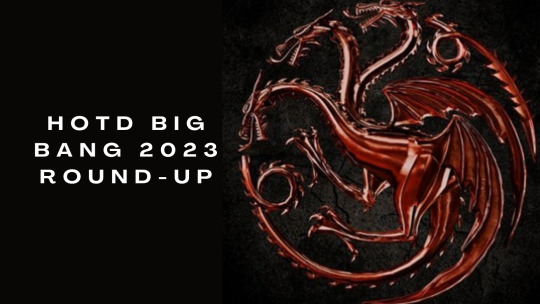
Thank you to all who took part in this year's edition of the House of the Dragon Big Bang! Below the cut is a round up of everyone's contributions.
Look at Me by @ripdragonbeans with art by @ewanmitchellcrumbs
Pearl of the Realm by @targaryenrealnessdarling with art by @aegonx
You're the Lighting of the Blaze by @emilykaldwen with art by @nyctophilic0vitnir
The Shadows of the Lost Court by @asa-do-your-thing with art by @/nyctophilic0vitnir
Moonlight Thoughts by @anjelicawrites with art by @4yvle1
Bright Eyes by @just-some-random-blogger with art by @/ewanmitchellcrumbs
Body and Blood by @/nyctophilic0vitnir with art by @selfproclaimedunicorn
Something Wicked this Way Comes by @the-common-cowgirl with art by @ice-mint
Doves and Ravens Fly the Same by @cocoalover1956 with art by @/the-common-cowgirl
Sweet Summer by @/ice-mint with art by @/ewanmitchellcrumbs
Denouement by @exitpursuedbyavulcan with art by @barbiedragon
Time Can't Stop Me Quite Like You Did by @randomdragonfires with art by @azperja
One Word Can Start a War by @/barbiedragon with art by @/just-some-random-blogger
Skori Zaldrizes Ropagon (When Dragons Fall) by @valleyof-goldenlilies with art by @/asa-do-your-thing
No More Than I Was or Than I Am by @acrossthesestars with art by @niocel
The Color Violet Never Seemed to Glow (Until I Saw it in Your Eyes) by @synkverv with art by @/ewanmitchellcrumbs
The Dragon Boy by @in-a-mountain-pool with art by @cyeco13
81 notes
·
View notes
Text
At one point Sameer spoke of being stopped and searched at Israeli checkpoints. He spoke in a manner that seemed not to require my presence. I hadn't seen this level of concentration and detachment in him before. That was fine. He was grieving.
"The shameful and humiliating way the soldiers run their hands up and down your body," he said. Then he added, "But the shame and humiliation runs even deeper if the Israeli soldier is an Ethiopian Jew."
The earth gave way. The thought that my place in the unconscious of Palestinians fighting for their freedom was the same dishonorable place I occupied in the minds of Whites in America and Israel chilled me. I gathered enough wits about me to tell him that his feelings were odd, seeing how Palestinians were at war with Israelis, and White Israelis at that. How was it that the people who stole his land and slaughtered his relatives were somehow less of a threat in his imagination than Black Jews, often implements of Israeli madness, who sometimes do their dirty work? What, I wondered silently, was it about Black people (about me) that made us so fungible we could be tossed like a salad in the minds of oppressors and the oppressed?
I was faced with the realization that in the collective unconscious, Palestinian insurgents have more in common with the Israeli state and civil society than they do with Black people. What they share is a largely unconscious consensus that Blackness is a locus of abjection to be instrumentalized on a whim. At one moment Blackness is a disfigured and disfiguring phobic phenomenon; at another moment Blackness is a sentient implement to be joyously deployed for reasons and agendas that have little to do with Black liberation. There I sat, yearning, in solidarity with my Palestinian friend's yearning, for the full restoration of Palestinian sovereignty; mourning, in solidarity with my friend's mourning, over the loss of his insurgent cousin; yearning, that is, for the historical and political redemption of what I thought was a violated commons to which we both belonged—when, all of a sudden, my friend reached down into the unconscious of his people and slapped me upside the head with a wet gym shoe: the startling realization that not only was I barred, ab initio, from the denouement of historical and political redemption, but that the borders of redemption are policed by Whites and non-Whites alike, even as they kill each other.
It's worse than that. I, as a Black person (if person, subject, being are appropriate, since Human is not), am both barred from the denouement of social and historical redemption and needed if redemption is to attain any form of coherence.
Frank B. Wilderson III from "For Halloween I Washed My Face" in Afropessimism (2020)
#frank b wilderson iii#antiblackness#afropessimism#reading#i take issue with some of his wording but sharing for the core idea#which he elaborates on later#decided to read this after watching origin which was...a mess
56 notes
·
View notes
Text

Fic Recs Wrap Up March 2024♡(੭ˊ͈ ꒵ˋ͈)੭*・:.。. .。.:*・゜゚・*☆
tissue of silver by fearlessdiva
A love story concerning possessed furniture, black silk pyjamas, courtroom drama, premonitions of doom, assassination attempts, Death Eater yoga, absinthe, bare feet and a sensible werewolf. Rec Post
The Piano by shushu_yaoi_lj @orange-peony
He arrives on a boat during a particularly stormy day.
Harry knew Astoria Greengrass had sent for a husband, someone to keep her company on the particularly dreary and dark winter days on this remote island. Harry didn’t know who it was she had arranged to be sent here. All he knew was that the weather was horrid today, and the Portkeys had never properly worked in this remote corner of the North Sea. The island was special, its magic working in odd and surprising ways. Rec Post
Turn From Stone by harryromper @harryromper
Something happened in the hours after the final battle, after the evacuation of the living and the dead. As the last of the survivors left the castle, and as the castle itself turned its wounded back on them all. The loss of Hogwarts has been felt by their entire community. And it’s something that needs to be put right.
Harry knows there’s nothing he can do to stop Hermione (war hero, historian, author of the reissued “Hogwarts: A History”) once she sets her mind to something. Even an extremely risky last-ditch effort to restore the ancient castle and lay its newest ghosts to rest. What he wasn’t counting on was her insistence that Draco Malfoy be part of the plan. Rec Post
With and Without You by Shewhxmustnxtbenamed @shewhomustnotbenamed
Harry and Draco realize that they’ve been living in the same building for the past five years, hiding from the Wizarding world in Muggle London for a variety of reasons. They grow unexpectedly close and Harry realizes that Draco’s relationship with his boyfriend is abusive, spiraling as he tries and fails to figure out how to help. In Harry’s rejection of the Wizarding world in general, he has fallen out of touch with his friends and his magical abilities, but has to reconnect with both in order to find himself again. Rec Post
Inevitable [Drarry] by violenttulips @violenttulips
After the war, Harry Potter becomes a talented Senior Auror with a penchant for injury in defense of his colleagues.
Draco Malfoy leaves the country for five years and becomes an accomplished Specialty Healer. He comes back after he accepts a job at St. Mungo’s Hospital.
When they meet again, it’s clear that Draco has changed significantly in the years since they attended Hogwarts together, and Harry finds himself strangely attracted to his former rival.
But things never come easy for the Boy-Who-Lived, and that’s not about to change now. Rec Post
Learn To Fly by Ladderofyears @ladderofyears
January 2004: Draco Malfoy and Harry Potter are two of the finest Seekers in England, deadly rivals and secret lovers.
As far as Draco is concerned, that’s how it’ll stay forever. He is betrothed to beautiful heiress Astoria Greengrass, and they are due to have a big summer wedding.
Everything changes during a hotly fought Arrows versus Wimbourne game when Draco falls from his broom. To his huge shock, when Draco awakes in St Mungo’s, he discovers he is pregnant.
What will Draco do, now everything in his tidily compartmentalised life has to change? Rec Post
He Comes Like a Thunderstorm by korlaena @korlaena
Draco is doing his best to balance the life he wants to live and the life he’s forced to live. He’s nearing the tail-end of a long, post-war probation when Harry Potter crashes back into his life with all the grace of a charging Erumpent, breaking through his carefully constructed rules and routine. Caught up in a whirlwind of sex and lust, Potter unwittingly shows Draco that his life as an Incubus doesn’t have to be as lonely and unfulfilling as he thought, but how long can it last? Rec Post
Denouement by the_never_was
Pale face in paler hands, he is devoid of color.
He is only the moonlight.
And he wonders if he’ll find the sun.
A story about Draco entering a period of change that will either shatter him or enfold him into Harry Potter’s world. Rec Post
Here are a few more fics I've read recently that y'all might like to check out as well!(ノ゚∀゚)ノ━☆゚・*:.。. .。.:*・.*・。゚*:・゚✧
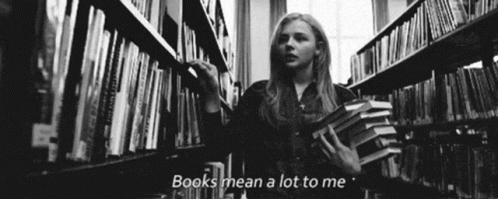
Stalking Harry by orphan_account
Harry Potter is the most eligible bachelor in the Wizarding world. Draco Malfoy is a disgraced ex-Death Eater with emotional baggage and a bit of a crush.
Through His Eyes (I Am Set Free) by Shewhxmustnxtbenamed @shewhomustnotbenamed
Harry and Draco have a telepathic connection that remains unexplained in both the Muggle and wizarding worlds. Draco is assigned a mission by Voldemort to locate and capture the Boy Who Lived-- the trouble is that they don't know anything about him. While Draco struggles to gather information on this mysteriously absent hero, he and Harry start communicating again for the first time since they were kids. Harry continues life as normal until he discovers information which compels him to abandon his ordinary Muggle life with the endeavor to rescue and emancipate his only friend-- even if that means bartering with his own life.
A Private Reason for This by Femme (femmequixotic) @femmequixotic
When the wife of a star politician in the Scottish Ministry turns up dead just outside Hogsmeade, Draco Malfoy and his murder investigation team are called in from the Edinburgh Auror force to find her killer. What DCI Malfoy doesn't expect, however, is to have an ex from two decades past end up in his murder room, endangering not only his case, but also his heart.
Consequences of Redemption by bobbirose @ominousflags
When Draco makes an impromptu decision to rescue Harry Potter from Malfoy Manor, the two find themselves completely alone and facing the looming climax of the war against Voldemort. Harry must start from the beginning with Draco--and starting over has more consequences than either of them anticipated.
( •ॢ◡-ॢ)-♡ I hope you enjoy these fics as much as I have! Happy reading, y’all! xoxo Carey (◍•ᴗ•◍)♡ ✧*💜💙💚💛❤💗💕💖
#Fic recs wrap up March 2024#Fic Recs Wrap Up#Drarry Fic Recs#drarry#Fic Recs#hp Fic Recs#harry potter#draco malfoy#hp#Harry Potter fic recs#Drarry fanfiction#Harry Potter Fanfiction#drarry fic#drarry smut#drarry fanart#hp fic#hp fanfiction#hp fanart#smut#hp smut#harry potter fanfic#harry potter fic#hp fanfic#Carey's Bookmark Fic Recs#carey's personal bookmarks#Sorry this is SO late!#Long Post#My recs
32 notes
·
View notes
Text
2024 Book Review #15 – Vietnam: A New History by Christopher Goscha

This was my third history book of the year, and is about what you’d expect from the title and knowing it’s written by an academic historian – right down to the solid 100 pages of notes and citations at the end of it. I honestly picked it up because, well, because there was a tumblr post with a really intriguing quote from it floating around a few weeks back, and because I haven’t read any East/South-East Asian histories in a couple of years, and most of all because my library had a copy with no one ahead of me in the line for it.
The basic conceit of the book is that a great many English (and French) language histories that purport to be about Vietnam are in fact about the Vietnam War. That is, they are in truth about the years from 1945 to 1975, with the whole rest of history being either prelude or denouement, and, what’s worse, that they’re at least implicitly histories of Vietnam from the perspective of Americans. So it is trying to be a corrective, writing from the viewpoint of the Vietnamese and paying more attention to internal developments and contradictions than either Cold War grand strategy or the minutia of military operations. It...mostly succeeds?
The book’s very much...I want to say postcolonial, but honestly it’s been so long since I was in an actual seminar I’m probably butchering the term. Anyway, it is very suspicious of both colonial mythology and the sort of patriotic, anticolonial propaganda that a distorted version of is probably the median western anglophone’s only exposure to Vietnamese history. The book Fire in the Lake comes in for a lot of criticism, both in its own right and just as a synecdoche for the whole corpus of work that subordinated careful history or sociology with presenting Vietnamese history as one monolithic tale of glorious resistance to foreign imperialism – which, whatever its merits as political interventions in the America they were published in (then doing its level best to bomb the country into a corpse-strewn hellscape), simplify and exaggerate the actual history they’re telling to the point of deception.
Which really starts with the idea that there’s a singular, coherent Vietnam that has a history vanishing into the ancient past, let alone one always on the side of resistance and independence. The first several chapters of the book are devoted to Vietnam’s precolonial history, with a great deal of emphasis paid to the fact that its present borders are the result of a multi-generational imperial project of conquest, forced assimilation and mass settlement that was still active and ongoing as the French first moved in to colonize Cochinchina. This is complimented by an admittedly slightly tacked-on feeling section at the end of the main narrative that’s basically an explicit counterhistory, covering the same period of the rest of the book from the perspective of the Cham and the highland peoples who ultimately lost out to the Viet and Vietnamese state-making projects.
The book makes a whole organizing principle out of analogizing this Viet colonial project with first the Chinese (both Han and Ming) and later the French colonization of both the Viet and the whole region. It’s very interested in how they interacted with each other, as well – how post-Ming Viet rulers used Confucian/Han high culture to differentiate themselves from other SEAsian peoples and justify conquering them, how the French often continued and intensified campaigns of Viet settlement so as to have easily legible labor to exploit, how the romanized script introduced to make colonial administration easier became the medium of nationalist mass politics, that sort of thing.
The meat of the book is dedicated to the French colonial period and to a lesser extent the wars of independence, focused on the different national and colonial projects dedicated to developing or creating a ‘Vietnam’ or ‘Indochina’ or ‘Tonkin’ or what have you. Something it keeps returning to is that neither the French nor the Viet nor the various highland peoples ever had any singular, unified project they were all united behind – internal contradictions were often just as great as the conflicts between them.
Which, even if I didn’t know for a fact, I more or less took as a given regarding the colonized. But I really hadn’t realized how riven with contradictions and self-defeating the whole French colonial project was? There actually were fairly significant constituencies among the Vietnamese intelligentsia and bourgeoisie for the whole schema of colonial republicanism, for a liberal capitalist or social democratic state in some sort of wider French orbit. The French, in turn, used them or imprisoned them seemingly at random, and gave them basically nothing but words. The Catholic Church was better at indigenizing its hierarchy than the French Republic. They made the British in India look like reasonable honest brokers! (The end result of all this being, of course, that anyone who’d been willing to work with the French on anything but mercenary terms ended up marginal and delegitimized.)
The reasoning is pretty obvious (in that it mostly just boils down to ‘le racisme’), but it is kind of interesting how right up until the end the French colonial authorities were convinced Vietnam was a land of naturally conservative, traditionalist Confucian peasants, and that if they could just get a pliant Emperor to play the part and establish his ‘natural connection’ to the mandarinate and the peasantry the whole nation would be at peace. (Relatedly, Bo Dai’s whole biography reads like a parable).
Goscha’s natural sympathies are pretty clearly with what you might call the cultural intelligentsia, especially as the book moves through the war years. The members of the Literary Self Strengthening Movement, the writers of pacifist novels, poets and academics. The tragedy of inconvenient artists, whose perspective on the war was too bleak or mournful for either the Communists or the Nationalists and who ended up repressed regardless of which side of the partition they were on, gets a particular focus.
As does the similar fate of liberal democratic nationalists – the political tendencies Goscha pretty explicitly sympathizes with. He holds something of a grudge for how the Communist Party formed coalitions or alliances with these groups then systematically sidelined or violently suppressed them as soon as it was tactically convenient – but he’s also pretty clear-eyed that the French, Diem regime, and Americans did more or less the exact same thing as needed. The whole process is portrayed as a bit of a tragedy.
Despite the book’s professed intentions, the war years still eat up something like a third of its page count – but in its defence, those pages are far more interested in nation-building an cultural shifts than the specifics of military operations (with the two exceptions of Dien Bien Phu and the Tet Offensive, for obvious reasons). As far as high politics go, the book loses interest in the Nationalists almost entirely after the fall of Diem, which has the effect of portraying the American client governments that followed as hopeless and purely mercenary even compared to the plantation owners who collaborated with the French.
The sections covering post-reunification Vietnam are easily the book’s weakest, which is rather a shame. It’s essentially one long epilogue – the section on the Chinese invasion and the events preceding it was tantalizing and just crying out for more details (and I, uh, did not realize the degree to which the government just fell back on discourses of near-explicit racism and collective responsibility re: the large Chinese ethnic minority, especially in the south).
The rest of the book after that – there’s a passage I read at an impressionable age, about how every history book since the ‘90s has been obliged to end with a hopeful chapter about the connective power of the internet and the rising middle class and the irresistible spread of freedom and democracy, and how as time goes on more and more things happen but that future never seems to really get any closer. This is not a perspective I’d really generally endorse (certainly less so now than in peak End of History years), but it’s one that really comes to mind reading the book’s perspective on the years since the economic reforms and opening to global markets. Power and government policy are talked about in vague, general terms, and individual activists and civil society members are highlighted and lionized instead. The talk about how the communist party has functionally transitioned into a class-iniclusive formation legitimized by nationalism and consistent economic growth and how that growth might in time force it to liberalize sounds identical to how people talked about China in the 2000s.
(The tragic irony that, from 10,000 feet, the United States has everything it might have wanted out of Vietnam – strategic partner against China, enthusiastic participant in the mechanisms of global capitalism – and killed millions of people over a decade of warfare for functionally nothing is repeatedly remarked upon.)
Anyway, that disappointment aside, still a very interesting and informative book. Not one that really lives up to its promise, and its strongest chapters are specifically those focused on the more distant past – but even its weakest chapters still have at least some interesting anecdotes thrown in for colour. Potentially grading a bit generously because I’m comparing this to my last big 600 page history book in my head, but I don’t at all regret reading this one.
35 notes
·
View notes
Text
Big spoilers for the first two books but one of the things I think grabs people with Stormlight is the unpredictable pacing. Like, there's quick pacing in the setup and the denouement but the rest of the book is slow and deliberate. A young man tries to escape slavery. A young woman frets over her plan to steal one item. An elder statesman debates on whether to abdicate due to his mental state. Parts of it are practically relaxing.
Then the next book has the young woman survive an assassination attempt, get shipwrecked, get attacked by bandits, become their leader, get engaged to the world most eligible bachelor, and finds a magical portal to a legendary city. The young man becomes the leader of a thousand soldiers, becomes guard to the king, learns to fly, tacitly participates in a plot to kill the king, thwarts the plot to kill the king, and "kills" the most physically powerful series antagonist. The statesman becomes defacto leader of his nation, leads four armies in a battle against demons, ends a years long war, and gains potentially world ending magical powers. The entire thing ends with the apocalypse starting.
Like, there's no telling when this series is going to deliver something thoughtful and contemplative or dire and explosive. I love it.
34 notes
·
View notes
Text

Interest Check OPEN!
Please do fill out the form below to let us know if you would be interested in participating or modding, as well as what you’d like to see in the zine!
Open from January 20th - February 3rd 2024.
Fill up the interest check here: https://forms.gle/JRyW5h9HzpdE5RpB6
Thank you!
67 notes
·
View notes
Text
Cas & the chair at the head of the table
==The chair breaks==
When Dean breaks a chair in 14x18 Absence, it's that three-part play on the word absence again: (a) Castiel's absence from the partnership both emotionally [Empty deal] and in terms of decision-making/trust, (b) Jack's absence of soul, and (c) Mary's absence in death.
The cabin they're standing in is dilapidated. Broken down. The breaking of the chair symbolizes the symbolic breaking of the marriage. It's the dissolution of the happy family as essential parts of it die and the rest splinters apart.

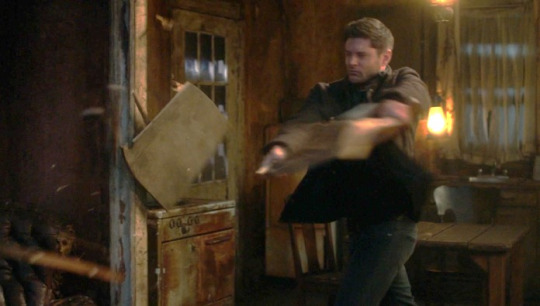
///
==When Cas is absent, this chair position is featured==
This is a chair position that has been associated with Cas before, when he died in 12x23 All Along the Watchtower-13x01 Lost and Found.
It's the head of the table. Cas's head is literally pointed at the empty chair in death. Dean's hands tenderly brush it as he walks past it.


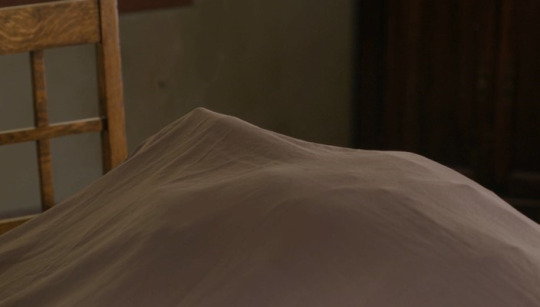
///
==Mended bonds: Cas rejoins the table==
After season 14's Absence, although we see Cas in the library and at the war table, we do not see him fully rejoin the kitchen table until 15x09 The Trap. Here he retakes this adjacent, head-of-table "partner" position again:


///
==The kitchen table in day-to-day bunker life==


Images by TVTechGeek
[NOTE: Yes, before you say it--all of TFW sits here sometimes. Usually, they sit across from one another when they're eating dinner. And Dean, for example, took the helm position when Jack died.
But the kitchen seating arrangement with respect to Cas is still conspicuous here in seasons 14-15 for the ordered sequence I've noted. There is a symbolic relation to the empty chair and its association with Cas's previous absences. There's a weight to when and where Cas rejoins the table with respect to Dean-Cas as a unit.]
///
==After Cas dies, the kitchen table features very little==
After 15x18 Despair, Cas is gone. Interestingly, after Cas leaves, although the kitchen itself is shown, even to illustrate the daily rhythms of the finale, the kitchen table is not shown again. The war table and the library are favored.
In the finale, Sam is shown cooking, and Dean is shown grabbing toast, and Dean is even shown doing dishes. That's it. The table does not feature.
(Most of the denouements take place in Sam's domain: the library.)
///
==Empty chairs, pizza boxes, missing pizza man==
So, what else is conspicuous about Cas & chairs? Well, the empty black chair of the dungeon in 15x18 is certainly conspicuous, but the 15x20 finale, despite having no Cas, has a peculiar abundance of empty chairs and pizza boxes.
Six months after Castiel's death, the empty spaces in Dean's room are filled by pizza boxes. ("The missing pizza man.")
On entering Dean's room, we see our first empty chair, the one by the couch.
And an empty pizza box.

This position calls to mind Dean's prayer scene from season 8's Remember the Titans. In that prayer scene, Dean sits on the "Cas" side of the bed as he prays towards the Cas-shaped lamp (you know--the tall one--reminiscent of the one he dances with in The Heroes' Journey). As the prayer ends, Dean glances over his shoulder towards the empty chair and laments Cas's absence.


It seems that this chair position in particular is a chair Cas would favor, and it especially represents the early days of their domesticity in the bunker.
Another conspicuous thing is those shirts draped over the green bench. The couch features a plaid shirt, plus a camo shirt (and tan rag?) that is decidedly not Dean’s style. It hearkens to army fatigues. Is this another ghost of the soldier (Cas?)
The only other thing this could be is a callback to Mary and Jack re: AU earth, but it seems more like a symbol of Dean and Cas.
That the army shirt & tan fabric are draped near an old phone seems another nod to Cas, the absent soldier. Since Lucifer’s cruel trick, Dean has been waiting for Cas to call.
///
And the second pizza box is simply...on Cas's side of the bed. Like a bedside table. This pizza box is inexplicable. One's weird, but two's a pattern. This pizza box is also in the frame with another empty chair.
Cas's side of the bed features the fan of domesticity, a Cas motif, as well as the tall Cas lamp. And now, we have another Cas motif: the pizza man.

SAM: "If Cas were here--"
DEAN: "He's not."
//
#cas + chairs#spn motifs#dean/cas + empty chairs#shal meta#spn finale#spn absence#spn remember the titans#spn the heroes journey#cas + pizza man#dean/cas + pizza#the pizza man and the meat man
64 notes
·
View notes
Note
Part 2 of the Seline and Matt fic with Isiah coming home to find the two of them asleep in the same bed?
Have this little ficlet as denouement from yesterday's fic then. Thanks for the request, I'm flattered you were curious.😊💙✨️
Isaiah came home to a surprisingly quite and dark apartment.
Normally Matthew's booming voice carried from the living room and he could always track Seline by the number of rooms with the light switched on. She tended to leave more of them on, even when alone.
He wondered if it was to ward loneliness, creating a feeling of presence and warmth.
Today it was suspiciously not so.
He tiptoed around the kitchen, mildly offended no one ate the lasagna he prepared yesterday so his roommates would have stuff to eat after coming home exhausted from classes.
Peeking into his room, he found Matthew's bed just unruly and empty as in the morning.
Huh.
Too curious to even change into his home clothes, he kept exploring in the darkness, climbing up the steps. They creaked enough in the silence he was sure he would not be able to hunt down anyone, if he wanted to. Not that he wanted to.
He had to jump away a little at a admittedly very badly smelling spilled water in the hall right next to the staircase. Who spilled water and didn't clean it after? The wooden floor would swell up from it...
The door to Seline's room was slightly open, so he creeped in.
Matthew lied on Seline's side of the bed, wrapped around her like she was his human plushie, snoring slightly. There was a basin at the side of the bed, which Isaiah took as an answer for the peculiar arrangement.
Seline's bright blue eyes gleamed in the twilight light, meeting his.
"What happened?" Isaiah mouthed soudlessly, coming closer.
The back of his hand went to Matthew's forehead, but there was no fever. Matthew was the most cuddly when he had a fever.
"Concussion," Seline mouthed back, combing her hair through Matthew's hair, her expression the softest thing, making Isaiah's heart melt.
"How long have you been trapped?" Isaiah said with a slight chuckle.
"Very long," Seline said with a smile.
She didn't look too concerned or uncomfortable with her predicitiment. He noticed she watched his reaction, eyes narrowed to slits as she patted Matthew's head, but Isaiah didn't know why. Matthew was his just as he was hers.
He was very very glad, in fact, when the two got along. There was nothing more torturous for him as when the two were arguing.
Though he had yet to have a major argument with Seline, so that was still up to discussion.
Isaiah leaned over to plant a kiss on top of Seline's hair, then went to open the window. The air was way too stale.
Satisfied with being back in the picture, he proceeded to change out of his suit into something more comfortable, then gathered supplies to clean up the puke puddle in the hall. The wood was getting slightly swolled already, so he threw an old towel over to soak up the residual liquid before disinfecting it.
Washing his hands thoroughly and cleaning everything up, he dared return to the room. What was he supposed to do with the rest of it alone, right? It was only natural.
Seline watched him curiously, pressed even closer to Matthew because of the cold air from the open windows.
Isaiah closed them, brought a glass of water from the bathroom for Sel and one more blanket from Seline's closet - he was getting familiar with where she kept what and was very excited about it - before climbing in the bed himself.
Seline turned to her back, sandwiched between them. Matthew was pressed against her side, but she wiggled her legs towards Isaiah, wrapping both around one of his.
Now very satisfied, with warmth and butterflies spreading all over him, Isaiah got his airpods out, gently inserting one into Seline's ear, taking the other for himself.
"Wanna hear the war update?"
Seline nodded, squinting at his phone screen. They followed a podcaster commenting on the Ukraine war. She listened to them alone before, since Ukraine was on on Slovakia's borders.
Isaiah knew how worried her family was about the war. If Putin won, he would not stop at Ukraine, they thought, but continue to usurp the rest of the former Sowjet block countries, including Slovakia and Czech Republic as it was before the Fall of the Iron Wall.
Not that Isaiah thought it was less relevant for the rest of Europe. Why would Putin stop anywhere, once he was that far? Austria didn't have to be saved by its neutrality.
And appeasement politic never worked with Hitler either, did it.
Isaiah snaked a hand under Seline's neck. He wanted to be attuned to her movements in the dark, to feel when she would jolt or shudder. If she was going to listen to this, better with him than alone.
He clicked play on his phone as Seline turned her head towards him, face pressing against his shoulder, taking slow measured breaths. Isaiah took her hand in his.
They stayed like that, huddled in the dark as the podcaster reported about destroyed cities, drone attacks and munition, taking turns at squeezing the other's hand for comfort.
#whump#mentions of emeto#sickfic#comfort#war tw#mentions of war#my writing#werewolf wip#it gets a litttle heavy at the end#but hey it's a contemporary world they can have contemporary european problems#Matt#Seline
21 notes
·
View notes
Text
something i havent rly seen mentioned when it comes to comparing/contrasting book & tv omens is the different yet deeply interconnected contexts of conflict they emerged from and interact with: book omens was written towards the end and published in the immediate aftermath of the cold war and tv omens was/is produced during the denouement of the war on terror*, and these real world climates are intrinsic to how each iteration contends with war, nationalism, (bi)partisanship, pacifism & conscientious objection, and the institutions and movements that uphold or disrupt these constructs
#gene.txt#good omens#srry i couldnt stop thinking abt this while i was doing my laundry so im gonna make it everyone elses problem. read my thesis statement boy#*when i say war on terror im using it w the knowledge that its a misnomer & displaces the united states' responsibilities btw#globalism is also a big factor here but i thought abt it too late and people are already rbing this lol
57 notes
·
View notes
Text
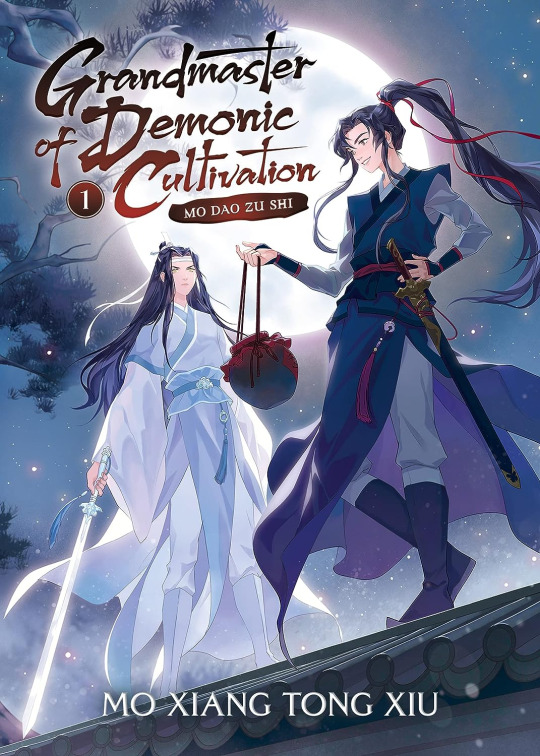
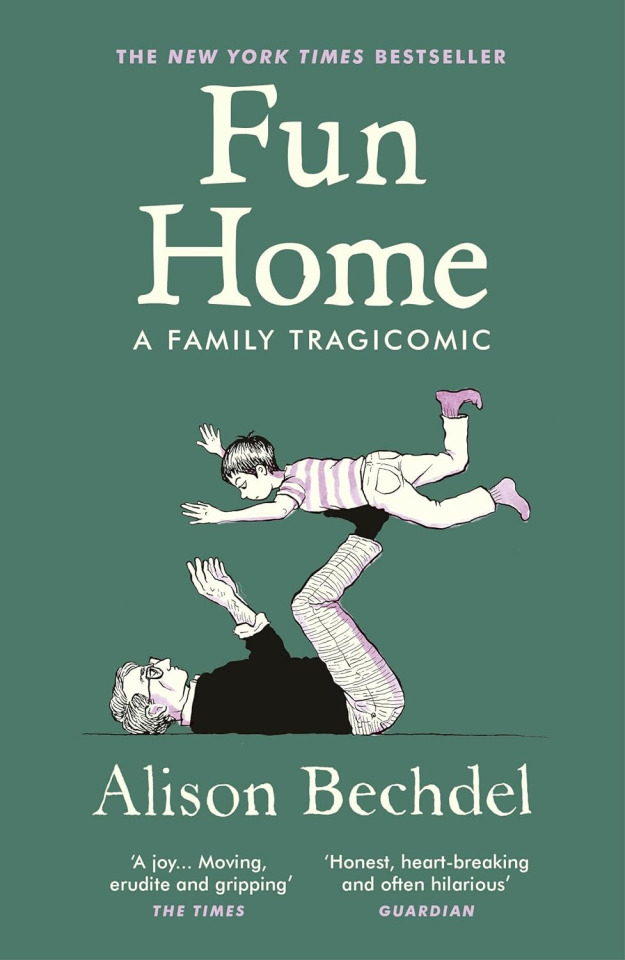
Grandmaster of Demonic Cultivation Summary:
Wei Wuxian was once one of the most outstanding men of his generation, a talented and clever young cultivator who harnessed martial arts, knowledge, and spirituality into powerful abilities. But when the horrors of war led him to seek a new power through demonic cultivation, the world's respect for his skills turned to fear, and his eventual death was celebrated throughout the land.
Years later, he awakens in the body of an aggrieved young man who sacrifices his soul so that Wei Wuxian can exact revenge on his behalf. Though granted a second life, Wei Wuxian is not free from his first, nor the mysteries that appear before him now. Yet this time, he'll face it all with the righteous and esteemed Lan Wangji at his side, another powerful cultivator whose unwavering dedication and shared memories of their past will help shine a light on the dark truths that surround them.
Fun Home - A Family Tragicomic Summary:
Meet Alison's father, a historic preservation expert and obsessive restorer of the family's Victorian home, a third-generation funeral home director, a high-school English teacher, an icily distant parent, and a closeted homosexual who, as it turns out, is involved with his male students and the family babysitter. When Alison comes out as homosexual herself in late adolescence, the denouement is swift, graphic, and redemptive.
Interweaving between childhood memories, college life and present day, and through narrative that is equally heartbreaking and fiercely funny, Alison looks back on her complex relationship with her father and finds they had more in common than she ever knew.
#grandmaster of demonic cultivation#the grandmaster of demonic cultivation#mo dao zu shi#mdzs#mo xiang tong xiu#mxtx#fun home#fun home - a family tragicomic#alison bechdel#danmei#lgbt books#lgbt literature#queer books#queer literature#lgbtqia#poll
30 notes
·
View notes
Text
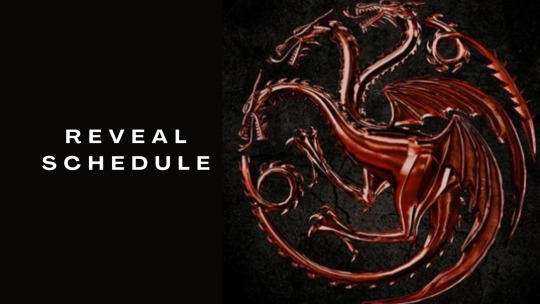
Tomorrow is the big day! The first ever House of the Dragon Big Bang reveals its first fic. We are so excited to share with you what all of our dedicated writers and artists have been working on together over the last few months. Please click the read more to see the full posting schedule, as well as general etiquette rules for our writers and artists.
November 1st - Look at Me by @ripdragonbeans (artist @ewanmitchellcrumbs)
November 2nd - Pearl of the Realm by @targaryenrealnessdarling (artist @darkestedgeofnight)
November 3rd - You're the Lighting of the Blaze by @emilykaldwen (artist @nyctophilic0vitnir)
November 4th - The Shadows of the Lost Court by @asa-do-your-thing (artist @nyctophilic0vitnir)
November 5th - Moonlight Thoughts by @anjelicawrites (artist @4yvle1)
November 6th - Bright Eyes by @just-some-random-blogger (artist no longer on Tumblr)
November 7th - Body and Blood by @nyctophilic0vitnir (artist @selfproclaimedunicorn)
November 8th - Something Wicked this Way Comes by @the-common-cowgirl (artist @ice-mint)
November 9th - Doves and Ravens Fly the Same by @cocoalover1956 (artist @the-common-cowgirl)
November 10th - Sweet Summer by @ice-mint (artist @ewanmitchellcrumbs)
November 11th - Denouement by @exitpursuedbyavulcan (artist @barbiedragon)
November 12th - Time Can't Stop Me Quite Like You Did by @randomdragonfires (artist @azperja)
November 13th - One Word Turns into a War by @barbiedragon (artist @just-some-random-blogger)
November 14th - Skori Zaldrīzoti Ropagon (When Dragons Fall) by @valleyof-goldenlilies (artist @asa-do-your-thing)
November 15th - No More Than I Was or Than I am by @acrossthesestars (artist @niocel)
November 16th - The Color Violet Never Seemed to Glow (Until I Saw Your Eyes) by @synkverv (artist @ewanmitchellcrumbs)
November 17th - The Dragon Boy by @in-a-mountain-pool (artist @cyeco13)
General Etiquette Rules
Each work will go live at 12pm UK time on its respective date.
You can reblog and promote your work as much as you like during your 24 hour period.
Please void promo'ing your own story on another person's day, so everyone has their chance for their story to be seen.
It is unrealistic to expect all participants to read every work submitted to the challenge, however, please be courteous to your fellow creators and reblog their stories and art, and leave kudos where possible.
Don't share your work until the listed day/time of your reveal.
Thank you so much to all for taking part! We are excited to share your hard work.
#hotd big bang#house of the dragon big bang#hotd#hotd fan fiction#hotd fandom#house of the dragon#house of the dragon fan fiction#house of the dragon fandom
71 notes
·
View notes